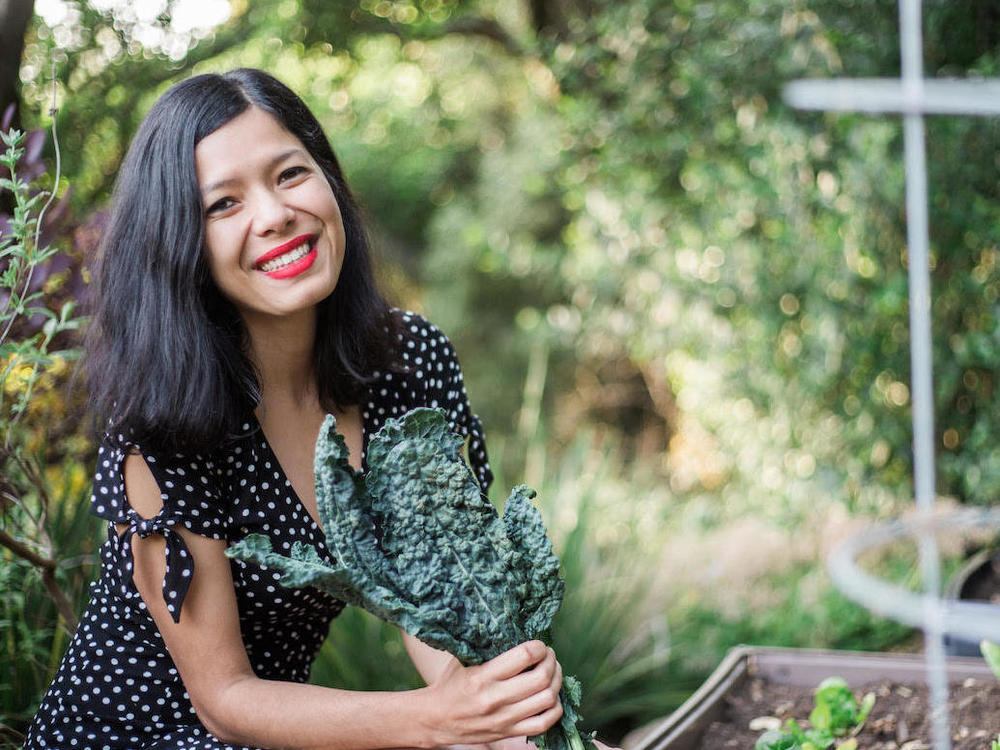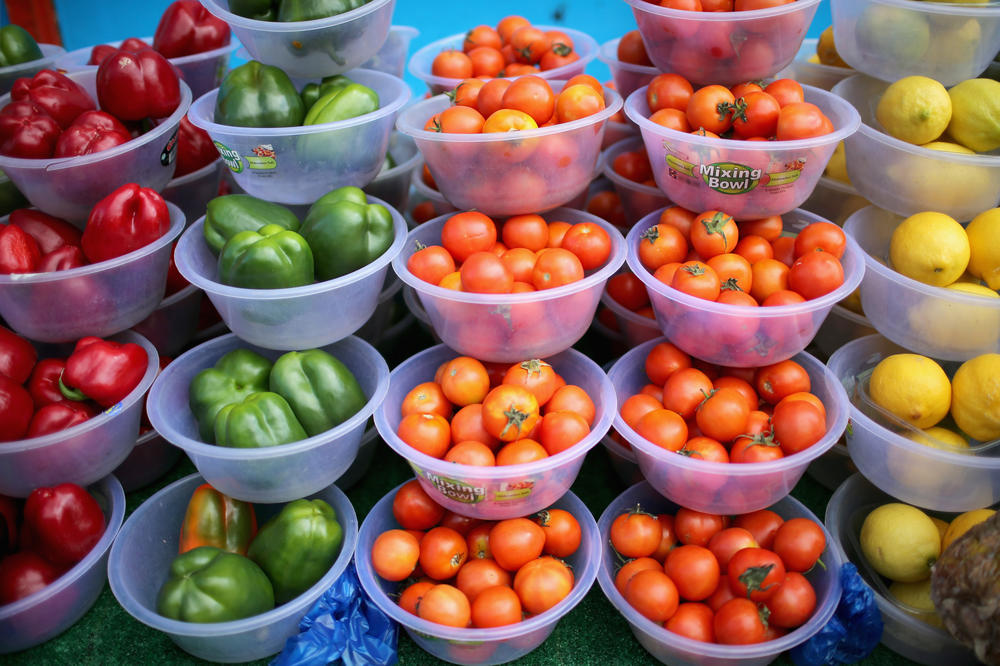Section Branding
Header Content
Nonwhite Americans are eating less meat. Vegan activists of color explain why
Primary Content
Toni Okamoto became overwhelmed with frustration after she watched family members suffer severe health consequences from the food they ate.
Her aunt suffered multiple amputations from Type 2 diabetes prior to dying, and her grandfather had multiple heart attacks before dying in a bypass surgery.
She also saw how their financial situations limited the choices they could make regarding their food.
So, she decided to do something.
"That's how I started Plant-Based on a Budget — I was on a limited income with limited resources to eat healthy-ish, and I started compiling those recipes for my family to benefit and saw very quickly how many people wanted to eat healthier but didn't know where to begin," she said.
Since then, the Mexican Japanese American has grown Plant-Based on a Budget into a website with free recipes, meal plans and resources to make eating plant-based cheaper and more accessible.
The decision to go vegan or vegetarian can stem from any number of factors. For some, it might be over concern for the safety of animals or the environmental impact associated with consuming meat. For others, personal health or rising food costs might be the driving factor. Whatever the reason, it is a decision central to the lifestyles of millions of Americans, and often for communities of color in particular.
Nonwhite Americans are roughly three times more likely than white Americans to identify as vegetarian. A Gallup Poll from 2020 found that nonwhite Americans reported reducing how much meat they eat at a higher rate than white Americans. When asked about their meat consumption in the past 12 months, 31% of nonwhite Americans said they had been eating less meat, compared with 19% of white Americans.
Naijha Wright-Brown, founder and executive director of the Black Veg Society, a nonprofit seeking to educate communities of color on the benefits of veganism and plant-based eating, says the number of nonwhite Americans reducing their meat consumption and identifying as vegetarian is continuing to increase.
"I know that a lot of the uptick and the movement towards eating this way is because people are dying," said Wright-Brown, noting some of the health-related disparities affecting Black and Latinx communities.
"It's a public health crisis at this point," she said.
Veganism is deeply rooted in communities of color
For vegan activists of color, the growth in the number of people turning to plant-based diets reflects an effort they've been part of and working on for a long time — one shaped by different motivations, beliefs and practices.
"Everyone thinks this is a new thing for us," said Wright-Brown, who explained that it's not.
"If you think of the Black Hebrew Israelites, if you think of the Seventh-day Adventists, if you think of the Rastafarians — who coined the term 'Ital lifestyle' for eating plant-based — this is not new," Wright-Brown said.
It's a misconception that people like Aph Ko have been working to correct. Ko, a writer, theorist and digital media producer, wanted to debunk stereotypes about who is vegan after she kept hearing that the movement was a white space.
"When I looked around, all I saw were people of color who were vegan, and so I was like, there's clearly a disconnect going on," Ko said.
Ko has spent much of the last seven years trying to raise awareness about Black veganism.
After writing an article in 2015 highlighting the work of 100 Black vegans, she created Black Vegans Rock — a digital space to showcase the diversity and creativity of the Black vegan community that shares projects, stories, restaurants, books and other initiatives.
"I think that the media is not aware that this is a very nuanced, incredibly diverse movement of people who don't do the work the same, don't always agree the same, and, there's theorists, there's artists, there's food justice activists, and so I think oftentimes Black vegans are seen as just these diversity tokens to diversify the white [vegan] movement, whereas we're just leading our own [movement]," Ko said.
Health is the main driver for many people
"When I first got into this lifestyle in 2006, and it was by way of health, my cholesterol was high," Wright-Brown said.
Traci Thomas, founder of the Black Vegetarian Society of Georgia, also based her plant-based efforts on health-related concerns.
"The diseases that plague a lot of people of color — they're what you would call lifestyle diseases, meaning that maybe you're eating a lot of the wrong foods or you're overeating, very little physical activity — those diseases are relatively easy to prevent and reverse, so I wanted to really make that connection with people of color," she said.
Heart disease remains the leading cause of death for Black and Latinx populations, according to the Centers for Disease Control and Prevention.
Diabetes also disproportionately affects Black and Latinx communities. And when it comes to treatment, research has found that Black and Latinx populations are also less likely to receive preventive care and experience complications from diabetes at a higher rate than white populations.
Taking small steps to eating plant-based
Vegan activists of color are also working to promote plant-based eating with an understanding and awareness of the small steps people can take to implement the lifestyle.
"There's a lot of ways to push this movement, and sorry, everyone's not going vegan, and everyone may not go full-time vegetarian, but if we can get people to think if they do it for one day, one week, a month, people are learning when they probably never even thought about learning or even adopting this type of lifestyle before," Wright-Brown said.
Okamoto said she believes in progress over perfection for people trying to live a plant-based lifestyle.
"I want to encourage people that it doesn't have to be all or nothing; if you make a mistake on purpose or by accident, you can continue on, you can continue changing these generational habits that may be bad for your health and really reclaim [your] health despite [your] budgets," she said.
Copyright 2022 NPR. To see more, visit https://www.npr.org.



